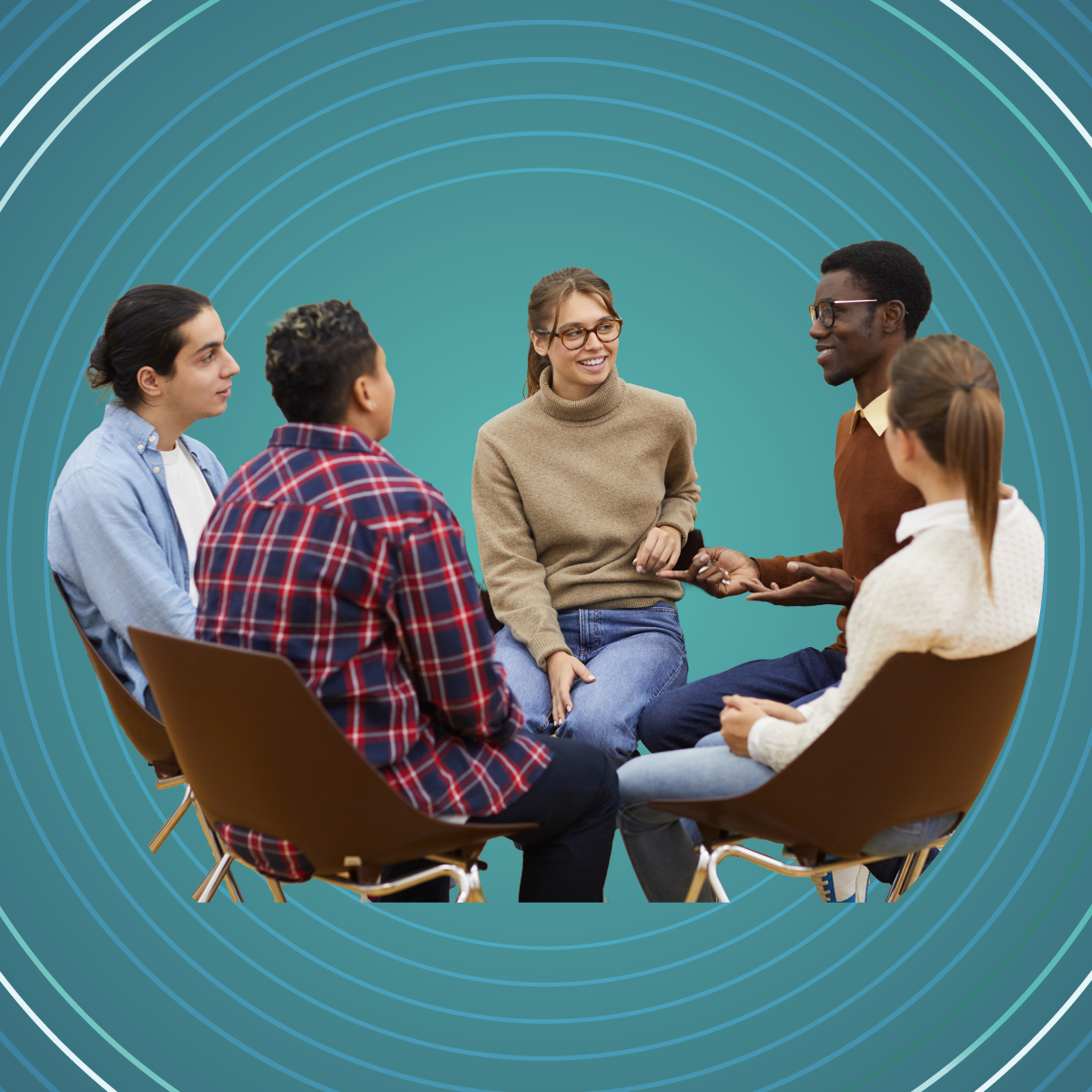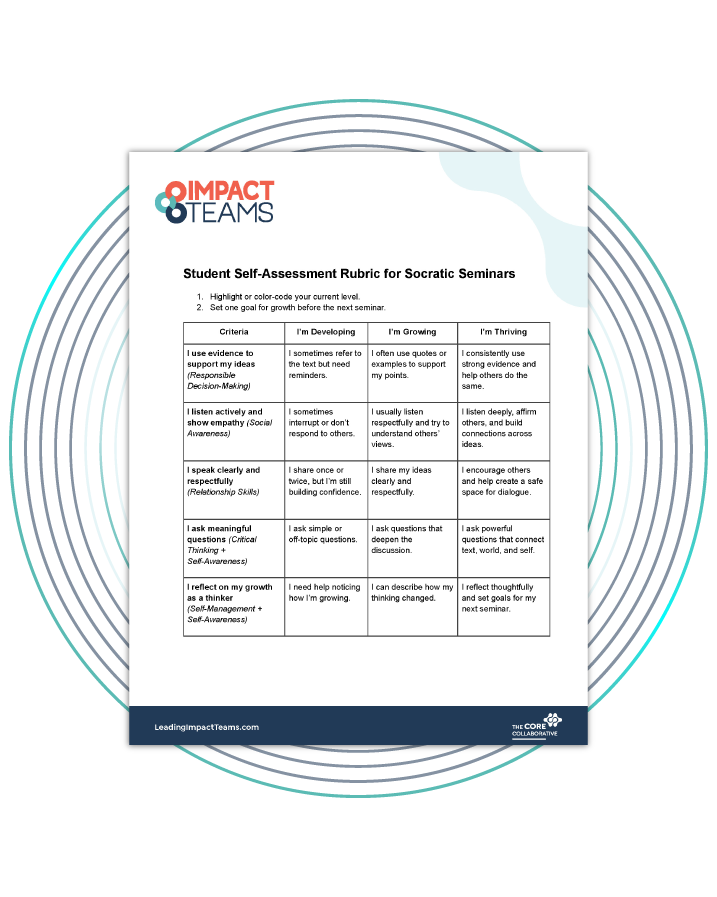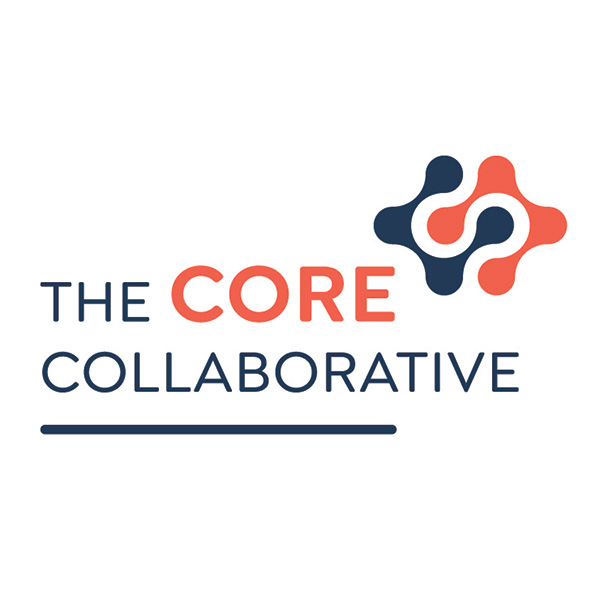The desks have been pushed aside, and a circle of seventh graders sit in the center of the room, their faces animated with thought and curiosity. In their hands, dog-eared copies of The Watsons Go to Birmingham—1963 rest on their laps. Jamal leans forward, voice steady but urgent:
“I think Byron acts tough because he doesn’t feel safe, not just at home but in the world. And when they go to the South, he realizes being tough won’t protect them.
A ripple of nods travels the circle. Alyssa responds, “That’s why I think Kenny changes the most—he sees what hate can do. It’s like… this book shows how racism affects kids, even when adults try to protect them.”
Their teacher doesn’t jump in. Instead, they pose a question back to the group:
“What does this story teach us about courage and silence? And who decides which voices matter in history?”
The circle breathes, pauses, and then blooms with reflection.
Socratic Seminar as a Microcosm of Democracy
In this classroom, democracy isn’t a faraway ideal—it’s lived. Socratic seminars transform a traditional classroom into a democratic space where every learner has a voice, every question matters, and thinking together is more important than finding the “right” answer.
Students practice the core tenets of a democratic society:
- Listening deeply
- Challenging ideas respectfully
- Supporting their thinking with evidence
- Inviting in perspectives different from their own
In many ways, Socratic seminars are not just about comprehension—they are a rehearsal for civic engagement. They create what Dr. Gholdy Muhammad calls intellect, and what Amplify Learner Voice through Culturally Responsive Assessment refers to as student-led meaning-making. These conversations cultivate criticality, compassion, and a sense of collective responsibility.
Belonging and Agency in the Circle
The circle itself is a symbol of belonging. No one is in front. No one is behind. Students don’t raise their hands to be chosen—they speak because their thoughts matter. This structure disrupts the traditional teacher-student power dynamic, making space for peer-to-peer learning and elevating the community’s shared wisdom.
When students see themselves as thinkers whose ideas can shift others’ perspectives, they begin to believe in their own academic agency. They begin to write themselves into the learning process—not just as recipients of knowledge, but as co-creators of it.
Assessment for Learning, Not of Learning
Socratic seminars are fertile ground for assessment for learning. Instead of measuring knowledge acquisition, educators can observe the process of thinking. The teacher’s role shifts from evaluator to facilitator of inquiry, asking:
- How do students build on one another’s ideas?
- Are they using evidence from the text and from their own lives?
- How do they navigate disagreement?
- Are all voices heard?
These are not simply questions about discussion—they are questions about learning identity. As Amplify Learner Voice reminds us, culturally responsive sustaining assessment (CRSA) honors where students come from, while helping them grow toward where they dream of going.
Tools like reflective self-assessment rubrics, peer feedback loops, and student-generated success criteria turn Socratic seminars into opportunities for formative assessment that are relational, rigorous, and rooted in equity.
Cultivating a Just Classroom
In a time when many students feel disconnected from school or uncertain if their voice counts, Socratic seminars say: You belong here. Your thoughts belong here. This is not just about creating “good discussions”—it’s about building a classroom culture where learners feel seen, heard, and empowered to think critically about the world and their place in it.
And that, at its core, is the promise of democracy.
Closing Reflection Prompt (for Teachers or Students)
How does your classroom make space for dialogue, not just answers? How might centering student voice through Socratic seminars nurture a sense of belonging and responsibility in your learners?
Do you believe in Literacy and Justice for All? If so… connect HERE
Post-Seminar Reflection Questions
- What did I contribute to the group today?
- When did I feel most connected to others’ ideas?
- Did I feel like my voice mattered? Why or why not?
Social Awareness & Criticality
- Whose voices did I hear the most? Whose did I hear the least?
- How did I show respect when someone disagreed with me?
- What did this seminar help me understand about the world—or myself?
Agency & Goal-Setting
- What’s one way I grew as a thinker today?
- What is one move I want to try in the next seminar to be more engaged or inclusive?
- If I could rewind one moment, what would I do differently?




